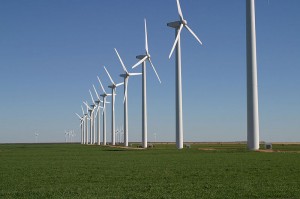Blue Planet Foundation: Clean Energy Policy MIA as Legislature Adjourns
The adjournment of the Hawai‘i State Legislature is drawing criticism from renewable energy proponents who say the 2017 session closed without taking any significant action toward clean energy solutions.
“We are profoundly disappointed that the legislature failed to act on common sense energy legislation,” said Jeff Mikulina, executive director at Blue Planet Foundation–a nonprofit organization committed to realizing 100 percent clean energy in Hawai‘i. “State leaders missed the opportunity to save residents money, reduce climate change pollution, and strengthen Hawai‘i’s clean energy leadership position.”
Most bills related to clean energy died early in the session. Those that failed to pass included a planned target for 100 percent renewable ground transportation, loophole closures in clean energy law, modernization of utility regulation, and increases in energy savings for homes and businesses, according to Blue Planet.
Blue Planet Foundation’s priority legislation, House Bill (HB) 1580, aimed to align Hawai‘i’s transportation planning with the state’s existing goal of switching to 100% clean energy by 2045.
Hawai‘i is consuming more fossil fuel for transportation according to state data. In 2016, the state burned nearly 2 percent more gasoline and diesel fuel in vehicles than the previous year.
“Setting a goal for our 100% renewable transportation future will align our planning, foster collaboration, and send a message that Hawai‘i is open for business for clean, modern, and affordable transportation,” said Richard Wallsgrove, Blue Planet Foundation’s policy director.
On Earth Day, April 20, Blue Planet Foundation organized a rally drawing over 600 students at the State Capitol to support clean energy and ask legislators to pass laws setting 2045 as a target date for 100 percent clean energy ground transportation. The organization also asked students statewide to write “postcards from the future” to lawmakers and share their vision of what a clean energy transportation future might look like. The postcards were compiled into a book and shared with legislators.
Vehicle registration trends in Hawai‘i reflect a growing transition to clean energy transportation by consumers. In the last year (March 2016 to March 2017), electric vehicle registrations throughout the state have increased by 29 percent, while registrations for gas and diesel-fueled vehicles have gone down by about 0.5 percent.
“Those concerned about our climate crisis should be alarmed that lawmakers are letting mainland fossil fuel interests steer our energy policy,” added Wallsgrove. “With the current political environment in Washington, D.C., it is crucial that states act on climate and clean energy solutions.”
In April, Hawai‘i’s Mauna Loa Observatory recorded its first-ever carbon dioxide reading in excess of 410 part per million, indicating green houses gases are continuing to accumulate in the atmosphere beyond levels known in human history. According to Blue Planet Foundation, the concentration of heat-trapping carbon dioxide has skyrocketed in recent years and is accelerating dangerous climate changes.
Blue Planet Foundation says Hawai‘i can be a global leader in demonstrating clean energy solutions, but that leaders must take action.
“The legislature’s inaction has cost us two years of progress on needed energy policy,” said Mikulina. “Hawai‘i will be losing ground—quite literally—if we fail to move quickly on climate solutions.”
Energy Bills That Did Not Pass:
- 100% renewable transportation planning target (SB 1186, HB 1580)
- Fixing existing renewable portfolio standard (RPS) calculation (SB 782, SB 906, HB 1040, and HB 903)
- Energy storage tax credit (SB 665)
- Performance-based ratemaking regulation reform for the utility (“Hawaii Ratepayer Protection Act”) (SB 366, HB 1283)
- Ensuring 100% renewable applies to all fossil fuel, including natural gas (SB 155, HB 1253)
- New standards for high-efficiency homes (SB 571, HB 1249)
- Prohibition on retail stores air conditioning the sidewalk (SB 595, HB 1294)
- Closing the gas loophole in Hawaii’s solar water heater requirement (SB 1121)














